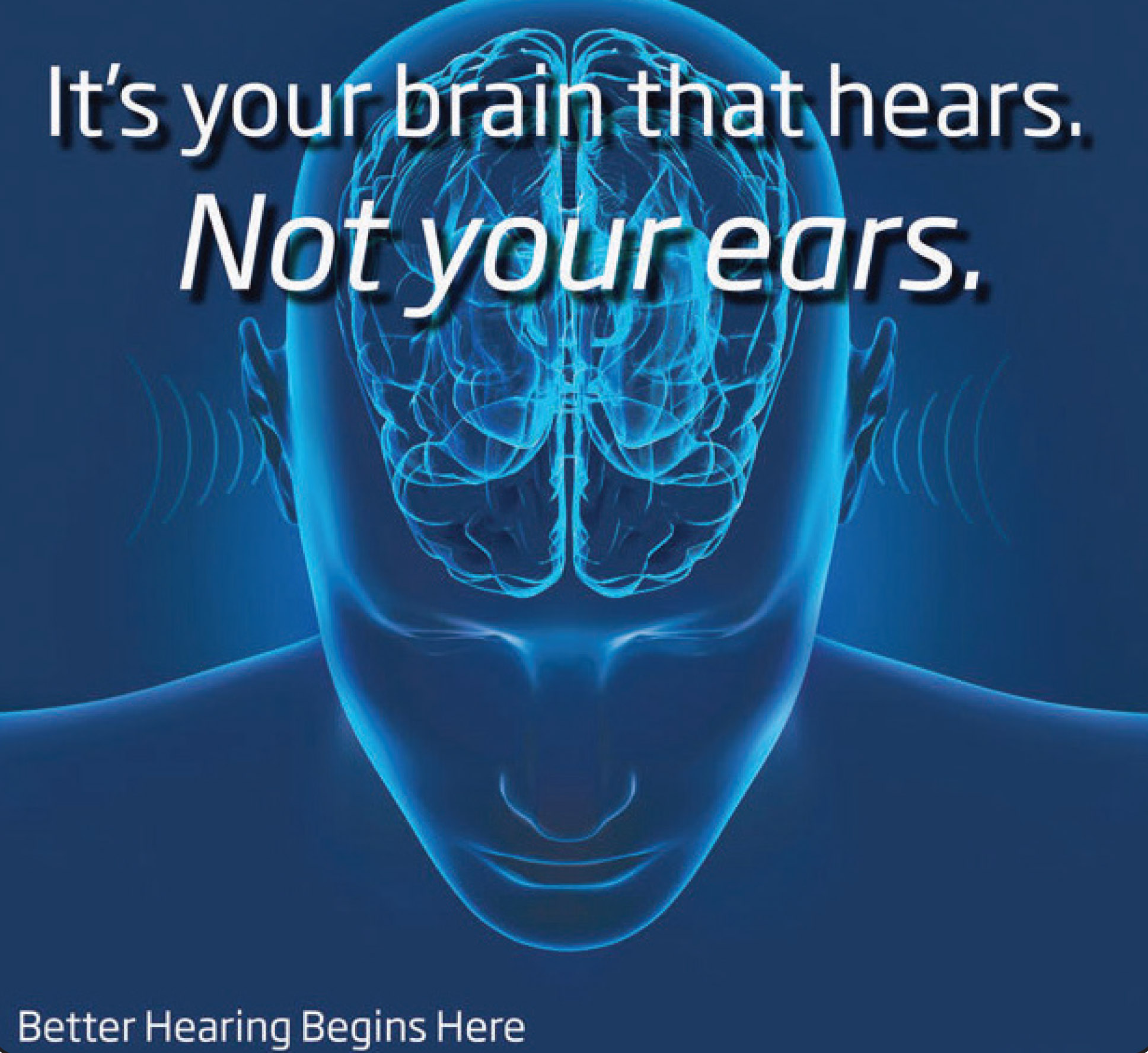Quality of life, safety, and well being are influenced by our ability to hear and communicate with others. Age-related hearing loss, known as presbycusis, is something most of us will eventually endure. Don't ignore your hearing loss because you assume it is "just a normal part of aging." How we choose to deal with hearing loss is more critical than one may realize.
"Hearing loss is not an inconsequential side effect of aging," said Dr. Megan Johnson of Johnson Audiology, noting that recent studies have linked untreated hearing loss with accelerated cases of dementia, Alzheimer's and overall mental decline.
In a recent study at Johns Hopkins involving men and women ages 75-84,researchers concluded that over a six year period, cognitive abilities including memory and concentration of those with hearing loss declined 30-40% faster as compared to people with normal hearing.
Dr. Susan Porter states, "It's imperative to stimulate the auditory pathway from your ear to your brain. The longer you ignore hearing loss, the harder it is to adjust to amplification when you finally decide to get help."
Dr. Courtney Guthrie added, "Untreated hearing loss will eventually lead to social withdrawal, and the lack of social stimulation and interaction will increase the rate for
developing dementia or Alzheimer's.
"Participating in group conversations is frustrating when you struggle to hear and understand," she explained. "Socializing usually occurs in some level of background noise which increases hearing difficulties and leads to lack of conversational participation or isolation."
Misdiagnosis of mental decline simply due to untreated hearing loss is an undeniable and prominent concern in the aging population, according to Dr. Johnson.
"As people with hearing loss can exhibit symptoms of depression, anxiety and others similar to dementia, it can and does lead to a misdiagnosis in some cases," Dr. Johnson
said. "That's why it's advantageous to get your hearing tested if you've recently gotten a diagnosis or have had family members and others close to you make remarks about the possibility of brain disease."
Often people with sensorineural hearing loss or "nerve damage," whether age-related or not, are told by their doctors that nothing than can be done. On the contrary, hearing loss is very treatable, and patients who get hearing aids early-on are far more successful in their performance than those who wait, Dr. Porter added.
"There's really no reason not to get your hearing tested and get help if you need it," she said. "You may think your hearing loss is hidden or not noticeable, but chances are everyone who knows you, knows you have it, and a simple device can make a world of difference."
At Johnson Audiology, we emphasize the importance of early intervention as the key to successfully treating hearing loss and reducing the risks for additional health problems.

